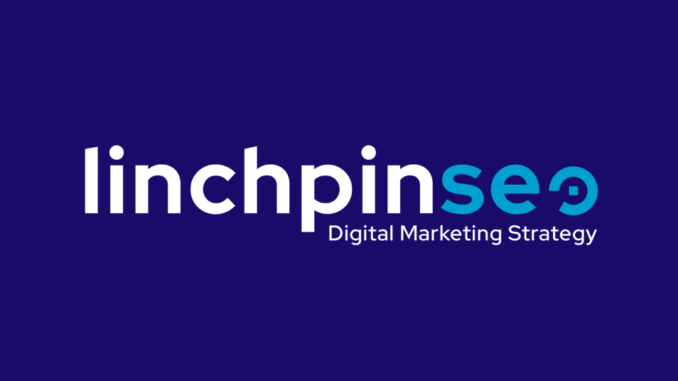
In the dynamic landscape of modern business, digital marketing has emerged as a cornerstone of growth and customer engagement. As traditional marketing channels become increasingly supplanted by online platforms, companies must navigate this digital realm with agility and foresight. Central to this is the understanding and implementing of effective digital marketing strategies, particularly in the dichotomy of short-term and long-term approaches.
Short-term digital marketing strategies typically involve tactics to generate immediate traction, such as pay-per-click advertising or social media campaigns. These can deliver quick results and rapid return on investment (ROI), thus appealing to businesses looking for fast growth or to capitalize on momentary market trends.
On the other hand, long-term strategies, including search engine optimization (SEO), content marketing, and community building, focus on developing a sustained online presence. While these strategies may not deliver instant results, they are instrumental in forging lasting customer relationships, enhancing brand reputation, and ensuring steady growth.
Neither short-term nor long-term strategies are inherently superior. Each has its benefits and drawbacks, and their effectiveness often hinges on a business’s specific context and goals. Therefore, a successful digital marketing plan lies in balancing both strategies.
This article will explore the intricacies of short-term and long-term digital marketing strategies, examining their advantages, limitations, and optimal application. We’ll also explore how businesses can balance these approaches to foster immediate results and sustainable growth. By the end, companies should have the insights to optimize their digital marketing efforts in a dynamic and unpredictable online marketplace.
Understanding Short-Term Digital Marketing Strategies
Short-term digital marketing strategies are those initiatives that aim to achieve quick results, usually within a time frame of up to six months. They are characterized by their capacity to target specific demographics, trends, and events with immediacy, garnering rapid responses and conversions. Let’s delve into the specifics:
Do you need digital marketing strategy or web design help?
Contact our CEO directly.
Short-term digital marketing strategies come with several advantages:
However, these strategies also have certain limitations:
Overall, short-term digital marketing strategies serve a crucial role in a balanced marketing approach. They offer immediate returns and high flexibility, but businesses must consider their limitations and ensure they are used as part of a more comprehensive, long-term plan.
Understanding Long-Term Digital Marketing Strategies
Long-term digital marketing strategies differ from their short-term counterparts primarily in their time horizon and the nature of their goals. These initiatives aim for sustained growth and market presence over an extended period, usually six months to multiple years. Here are some key examples:
Advantages of long-term digital marketing strategies include:
However, they do come with their share of limitations:
In conclusion, long-term digital marketing strategies are vital for establishing a solid online presence and achieving sustainable growth. Despite their slow initial results and the ongoing resources they require, their role in building brand reputation, customer loyalty, and providing cost-effective results over time cannot be overstated. Balancing these with short-term tactics can result in a comprehensive digital marketing plan that drives immediate and long-term results.
Balancing Short-Term and Long-Term Strategies: A Strategic Approach
The relationship between short-term and long-term digital marketing strategies isn’t mutually exclusive; they are complementary facets of a comprehensive marketing strategy. Striking a balance between the two is essential for companies to effectively address immediate business goals while concurrently building a foundation for sustained success. Here’s how to achieve this balance:
Balancing short-term and long-term strategies enables businesses to enjoy the best of both worlds: rapid growth and sustained success. It’s about leveraging the immediacy of short-term tactics and the brand-building power of long-term strategies in a coordinated way. This balance provides businesses with the agility to capitalize on immediate opportunities while ensuring they are investing in their long-term growth and resilience.
Measuring Success in Digital Marketing
The effectiveness of both short-term and long-term digital marketing strategies should be gauged regularly to ensure their alignment with the desired business outcomes. Performance measurement also allows for course correction, helping businesses adjust their plans based on current trends, competitive landscape, and market changes. Here’s how to approach it:
Measurement lies at the heart of successful digital marketing. By choosing the right KPIs, leveraging analytics for data-driven decision-making, and being adaptable to change, businesses can optimize their marketing efforts and drive better results from their short-term and long-term strategies. It’s not just about setting up systems; it’s about continuously learning, adapting, and optimizing to deliver the best results for the business.
Conclusion and Future Trends in Digital Marketing
Digital marketing is an ever-evolving landscape, and businesses must remain adaptable, always ready to leverage the strategies that best meet their short-term and long-term objectives. By understanding the merits and limitations of short-term and long-term strategies, businesses can create a compelling marketing mix that drives immediate results and sustainable growth.
Looking forward, there are a few emerging trends businesses should consider:
In conclusion, whether focusing on short-term wins or building a long-term presence, businesses must stay abreast of these trends and continuously adapt their digital marketing strategies to remain competitive. Achieving a balance between short-term and long-term strategy, measuring success, and incorporating emerging trends will be vital to thriving in the dynamic digital marketing landscape.

Leave a Reply